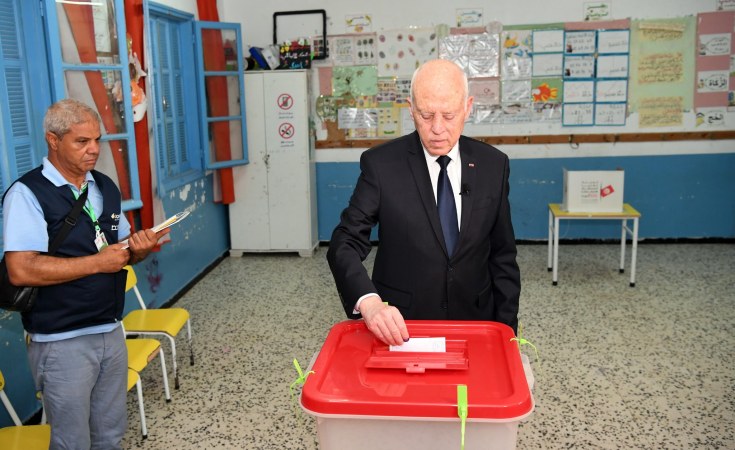Commission Should Respect Court Ruling Reinstating Prospective Candidates
This week, Tunisia's electoral commission confirmed only three candidates for the October 6 presidential election, including incumbent President Kais Saied and a detained candidate, disregarding major court rulings that had reinstated three other contenders to stand in the polls.
The Independent Electoral Commission for Elections (ISIE) confirmed Saied and two former parliament members, Zouhair Maghzaoui and Ayachi Zammel, as the sole presidential candidates; the same list it initially released on August 10. It had previously disqualified 14 prospective candidates, including serious contenders to Saied, for various reasons.
Three of the rejected candidates won appeals against the electoral commission before Tunisia's administrative court: Abdellatif Mekki, a former health minister, Mondher Zenaïdi, a former minister under then-President Zine El Abidine Ben Ali, and Imed Daïmi, a former MP.
Decisions of the administrative court, which has exclusive jurisdiction over electoral candidacy disputes, are legally binding. Yet, Farouk Bouasker, the ISIE's president, said on September 2 that the commission was "unable to enforce" the court rulings, and the list of presidential candidates "is final and not subject to appeal."
The electoral commission has been under the control of Saied since he restructured it in April 2022; its seven members are now nominated by the president. Instead of ensuring the integrity of the upcoming election, the commission has intervened to skew the ballot in favor of Saied.
The electoral commission attempted to discredit the administrative court's appeal rulings by filing a petition to disqualify judges; a flimsy attempt rejected by the court on August 31. It also initiated several complaints against President Saied's political opponents or critics, some of which have led to convictions, including that of Free Destourian Party (Parti Destourien Libre) president Abir Moussi.
Tunisians are about to vote for president against a backdrop of increased repression of dissent, muzzling of the media, and continued attacks on judicial independence. Since the start of the electoral period July 14, authorities have prosecuted, convicted, or detained at least nine prospective candidates. Zammel, one of the few confirmed candidates, was placed in detention on September 4 pending trial on charges of falsifying endorsements.
Holding elections amid such repression makes a mockery of Tunisians' right to participate in free and fair elections. The electoral commission should immediately reverse its decision, enforce the administrative court's ruling, and end its political interference in this election.
Bassam Khawaja, Deputy Director, Middle East and North Africa Division


